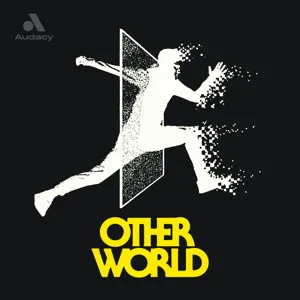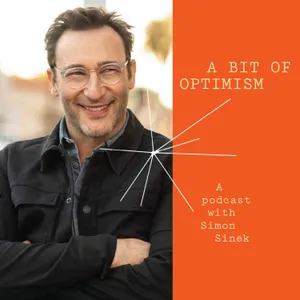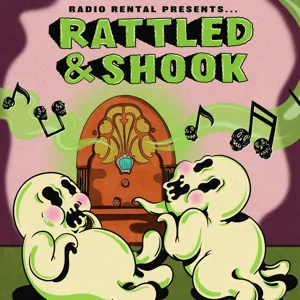Podcast Summary
Exploring the past to understand race and inequity: Spending nights in restored slave cabins on former plantations helps bring attention to history and honor those whose labor built America's magnificent structures, encouraging personal growth and cultural preservation.
Understanding and acknowledging the complex history of race and inequity in America is an essential part of personal growth and cultural preservation. Joseph McGill, a history and culture preservationist, shares his journey of spending nights in restored slave cabins on former plantations across the country to bring attention to these spaces and honor the people whose labor built the magnificent structures we see today. This project, now his life's focus, encourages us to confront the past and learn from it, ultimately helping us better understand ourselves and our history. It's not always an easy conversation, but it's one worth having.
Historical sites hold overlooked stories of enslaved people: Acknowledging and preserving enslaved people's stories in historical sites is crucial for understanding American history, fostering conversations on racial issues, and promoting healing from historical trauma.
Historical sites, such as those in Charleston, South Carolina, hold multiple stories. While these sites may be known for their grand architecture and antique furnishings, they also serve as reminders of the people whose labor built them. Joe, a descendant of enslaved people, emphasizes the importance of acknowledging and preserving these often overlooked stories. He shares his personal experiences of sleeping in these spaces and the powerful conversations that take place around the campfire. Though progress has been made in recognizing the role of enslaved people in American history, there is still much work to be done in fully acknowledging and preserving their stories. The physicality of being in these spaces can disarm us and provide a safe space for discussions on topics like racism, white supremacy, and historical trauma.
Exploring the past for personal and historical connection: Understanding our past, especially the complex history of race, can lead to new insights and a deeper sense of self and connection to history. Personal stories of reconnecting with enslaved ancestors highlight the importance of acknowledging and learning from history to create a more informed and inclusive future.
Understanding our past, particularly as it relates to race, can lead to new insights and a deeper sense of connection. Joseph McGill, the founder of the Slave Dwelling Project, shared a powerful story about a young black man's question about hope for those who lived as slaves. McGill and others came to the conclusion that hope was found in the fact that future generations would carry on their legacy. McGill believes that his work is guided by his ancestors. On a personal note, NPR's B.A. Parker embarked on a journey to understand her own family's enslaved ancestors. Her two-part series, "Honoring My Enslaved Ancestors," highlights the importance of reconnecting with our past to better understand ourselves and our place in history. These stories remind us that our past, no matter how difficult or complex, can provide valuable lessons and a sense of continuity. By acknowledging and learning from our history, we can create a more informed and inclusive future.
Exploring family history leads to deeper appreciation for heritage: Exploring one's family history can lead to a deeper appreciation for personal identity and sense of belonging, as seen in Parker's connection to her ancestors at the Somerset Plantation.
Understanding and connecting with one's ancestry is an important and meaningful experience. As shared in the discussion, Parker's exploration of her family history, particularly her connection to the Somerset Plantation in North Carolina, led her to gain a deeper appreciation for her heritage and the stories of her ancestors. This was facilitated by the efforts of historian Dorothy Spool-Redford, who dedicated herself to preserving and sharing the history of the enslaved people at Somerset. The resulting homecoming event brought together over a thousand descendants, creating a sense of pride and connection to their shared history. This story highlights the significance of knowing one's ancestry and the impact it can have on personal identity and sense of belonging.
A grown person's visit to their ancestral plantation can be emotional and profound: Visiting one's ancestral plantation as a grown person can provide a deeper connection to family history, through engaging senses and empathizing with ancestors' experiences.
Going back to the plantation of one's ancestors as a grown person can be a profound and emotional experience. Parker's visit to Somerset, the plantation where her family had deep roots, was different from her previous visits as a child. This time, she went with her mother, who was now the eldest generation, and prepared for the trip by gathering information and practicing self-care. During the visit, Parker was able to fully engage her senses and empathize with the experiences of her ancestors. She heard the birds singing, felt the wind, and imagined the lives of those who had built the plantation. At the site, they learned about the hardships and losses endured by enslaved people, including the drowning of two boys in a canal, an incident involving Parker's great-great-grandfather. The visit was a humbling and grounding experience that allowed Parker to connect more deeply with her family history.
Honoring the Past through Grave Care: Cleaning and caring for the graves of loved ones, especially those with a complex history, can bring a sense of closure and fulfillment.
Honoring and taking care of the graves of loved ones, especially those with a complex and painful history, can be a powerful way to connect with the past and find a sense of closure. The speaker, B.A. Parker, shares her experience of honoring her enslaved ancestors and her grandmother by cleaning their graves and ensuring they have proper headstones. This tradition, passed down through generations, provides a sense of continuity and allows the speaker to feel that she is carrying on the legacy of those who have gone before her. Despite the challenges and traumas of the past, this simple act of honoring and caring for the graves brings a sense of peace and fulfillment.
The cycle of progress and backlash in racial equality: Charles Blow advocates for black people to concentrate political power in the South to reverse the Great Migration and increase influence over state power, aiming for lasting change in racial justice.
Progress towards racial equality often faces significant backlash, leading to a cycle of advancement and regression. Charles Blow, a New York Times opinion columnist and MSNBC political analyst, discussed this pattern throughout history, from Reconstruction to the present day. He argues that for true racial justice, black people need to concentrate their political power by reversing the Great Migration and returning to the South. This strategy, outlined in his book "The Devil You Know" and documentary "South to Black Power," aims to increase influence over state power and address issues that disproportionately affect black communities. Despite the challenges, Blow is determined to move beyond the cycle of progress and backlash and work towards lasting change.
Black Power: Harnessing State Control for Change: Black people can leverage concentrated voting power to bring about change in states with significant Black populations and economic opportunities.
The concept of black power is essential for Black people to have more control over the power that affects them, particularly at the state level where they often have little influence. The historical example of white hippies taking over Vermont and transforming it into a liberal state serves as proof that concentrated voting power can bring about change. Black people, in an imperfect world, need to consider this strategy to counteract the open manifestation of anti-black racism in policy and power. The speaker suggests focusing on specific southern states with large Black populations and significant economic opportunities, such as Georgia and North Carolina. The ultimate goal is not about party loyalties but the pursuit of freedom and equality.
Historically, Atlanta offers sanctuary for black power and prosperity: Despite challenges, Atlanta and the South offer an alternative to ills of northern and western cities for black Americans. Engagement in political system necessary for change.
Atlanta and the surrounding area have historically offered a sanctuary for black power and prosperity, drawing people in despite the challenge of capturing governor seats for true political power. For those who have experienced the ills of northern and western cities, such as militarized policing and concentrated poverty, the South may offer an alternative. The speaker, originally from a big city like Oakland, found safety and nurture in Atlanta despite its history, contrasting it with her experiences in California and DC. Southern cities, rather than those in the northeast or west, are where the black middle class is thriving. However, the political system, which has consistently failed black Americans, requires engagement and consolidation of power for meaningful change, rather than fear or surrender. Criticism suggesting that the "Black Mecca" plan requires faith in a flawed political system misses the point, as engagement is necessary regardless of location.
Power dynamic between marginalized communities and political parties: Shifting the power dynamic can lead to increased representation, accountability, and a more equitable political landscape for marginalized communities.
Changing the power dynamic between marginalized communities and political parties can lead to significant improvements in representation and accountability. As Charles Blow, a New York Times columnist, suggests, when a group of people consistently votes for one party due to feeling excluded by the other, the party in power may not feel the need to cater to their needs or concerns. By shifting this dynamic, no party can win the United States presidency without securing the votes of states controlled by these communities. This change would lead to increased accountability and a more equitable political landscape. Blow's ideas are further explored in his book, "The Devil You Know: A Black Power Manifesto," and his documentary, "South to Black Power," both available on TED.com. This shift in power dynamics can ultimately lead to more meaningful and inclusive political representation.






